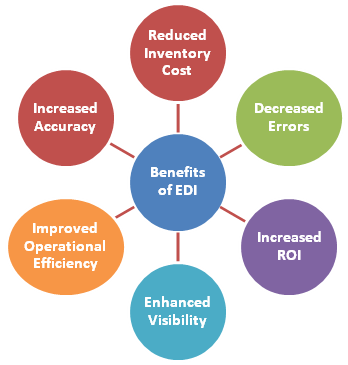EDI is an abbreviation for Electronic Data Interchange. The basic definition of EDI is:
Computer-to-computer communication of business documents, in a standardized format, between two companies.
Although it has a technical-sounding name, EDI is fundamentally a business initiative, which has been developed over the past thirty years. It was pioneered by the transportation, retail, and grocery industries, in an effort to increase quality and customer service, and offer long-term cost benefits. EDI also represents a major step in creating a paperless office.
By replacing paper documents such as purchase orders or invoices, with its EDI “equivalent” – a computer-readable EDI document – four key benefits are realized:
1) Accuracy is increased, since human intervention (the acts of entering and re-keying data) is eliminated
2) Timeliness is increased (the electronic transmission of forms eliminates the delays inherent in conventional mail, or even Fax)
3) Customer service is improved
4) Bottom line costs are reduced



